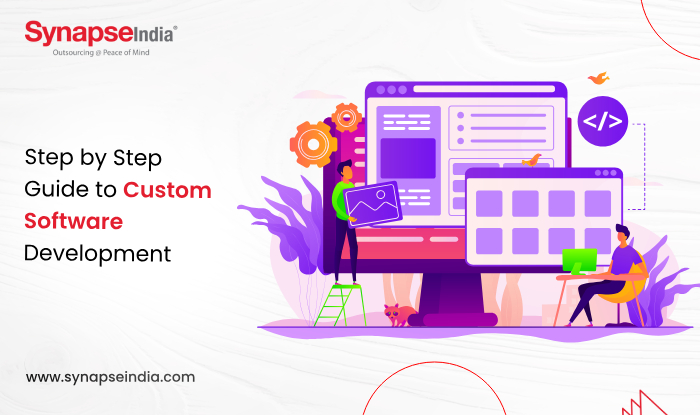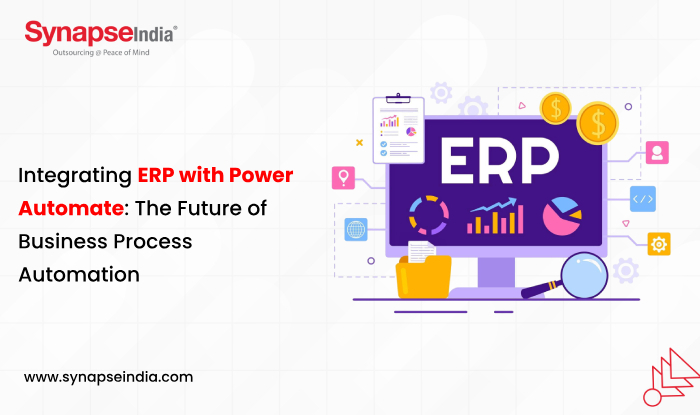 18 Sep 2024
18 Sep 2024
Whether it’s about meeting specific business challenges or standing out from the crowd by offering unique products and services to customers, custom software development is the way to go. Custom software development offers many advantages to businesses that would not be possible with commercial, off-the-shelf software. It allows for seamless integration with existing systems, upscales business with ease, creates transformative products to meet customers’ unique needs and adjusts to the rapidly changing needs of the market.
These are just a few of the many benefits that custom software development brings to businesses. From small-scale startups to large-scale enterprises, custom software development brings a way to turn challenges into opportunities for businesses of all sizes. By understanding the intricacies of the custom software development process, you can proceed to create successful software designed to meet your unique business requirements.

Custom software development is the process of building software solutions that are designed keeping in mind the unique objective of a business. Unlike off-the-shelf software that meets the generic needs of organizations, custom software meets the specific needs of a particular organization or business.
Although custom software development is a complex process involving a number of stages, with the right expertise, it becomes much simpler. Aligning yourself with a professional custom software development service can help you get a solution tailored according to your precise business needs.
Custom software is built keeping in mind a particular business and offers a unique solution that can be customized based on the changing requirements. As a business scales and evolves, custom solutions can be modified to add new functionalities that support the evolution. This is the primary benefit of getting a custom solution developed for your business. Other major benefits of custom software development include:
By meeting specific challenges of an organization, custom software solutions enhance business efficiency.
Custom software development empowers you to create unique features, intuitive interfaces, and overall better user experience. This not only differentiates you from the crowd but also allows you to offer a better customer experience.
Custom software is designed keeping security features in mind. This makes it less prone to threats and ensures the safety of your sensitive information even if there is an attempt at a cyberattack.
As your business grows, custom software solutions can be scaled to meet the upgraded requirements without changing the whole infrastructure.
Every business uses a multitude of applications that work in conjunction to achieve different business goals. With custom software, you get easy integration with third-party applications for a smooth workflow within the organization.
There are different kinds of custom software solutions available in the market and depending on the nature of their business, organizations can opt for one or more types of software developed for them.
As the name suggests, a Content Management System allows you to manage the content on your website without requiring technical expertise. It also facilitates storage and retrieval of content in an orderly manner and improves collaboration by allowing multiple users to contribute to a project. A CMS enables you to publish web pages and you can also create new pages without having the need to write code from scratch.
CRM software allows businesses to manage customer interactions effectively, enabling them to maintain long-term relationships with the customers. CRM software lets businesses research their customers, collect and store important information, and utilize the same to provide a better customer experience. These software solutions play an important role in retaining old customers along with creating new ones.
An enterprise resource planning software allows organizations to handle their day-to-day operations with better efficiency. Business processes like accounting, supply chain operations, project management, risk mitigation, sourcing, and procurement, can be managed effectively with ERP software. ERP software offers a platform for businesses to plan their activities and forecast their revenue and growth.
An order management system helps businesses plan, monitor, and control their manufacturing and production operations to meet market demands. It also allows businesses to streamline daily workflows, spend their resources efficiently and automate different processes for maximum efficiency.
Ecommerce software solutions are important to manage ecommerce operations by making it easy to sell products online. Operations such as payment processing, inventory management, order fulfillment, creating marketing strategies, etc. can all be managed with ecommerce software. From creating an online business to successfully managing it, ecommerce software comes with features and functionalities to handle everything important to run an online business.
Enterprise software solutions are designed for organizations to run, scale, and optimize their day-to-day operations. These solutions can be developed for specific purposes such as customer service, sales and marketing, operational support, supply chain management, human resource management, business intelligence, etc.
Following the best software development practices can help your business develop solutions that deliver successful outcomes without causing a waste of resources. Here are some best practices to follow for effective custom software development:
Before you start with custom software development, define clear goals of what your business expects to achieve with the software being developed.
A well-planned development strategy with achievable milestones should be created before starting the development process. Try only to include realistic expectations from the software and the development team.
Hiring experts from a professional custom software development company can help you develop custom software without much effort and complications.
Keep track of every stage of the software development process to ensure that the development is not deviating from the laid-out plan, wasting your time and resources.
Custom software development is a complex process that involves careful planning, execution, and management. It comprises various intertwined stages that involve designing the initial concept through to final deployment and maintenance. Check out this thorough guide to custom software development to get a bespoke solution to support your business goals.
Identifying the requirements and scope of the software you are about to build is the first step to custom software development. Define your objectives based on questions such as what this software is expected to achieve, what problem it is going to solve, who is to benefit from this software and how it is going to be different from other similar software.
Decide on important features and functionality of your software and the performance it is expected to deliver. Create a thorough document clearly mentioning the functional requirements and non-functional requirements of the software.
Planning involves outlining the timeline, milestones, and resources required for the development process. A project schedule, budget estimates, and a risk management plan should be designed before proceeding with the development process. This is important to ensure that the project does not stray from track and stays within budget.
After planning comes designing the project which includes creating wireframes, prototypes, and architecture of your software solution. Wireframes and prototypes give an initial idea of how the developed software will look and feel. Architecture design provides an idea of software system structure, including its components, modules, and interactions. Programming languages, frameworks, and databases should also be decided in the designing stage.
After the planning and designing phase is complete, it’s time to move on with the actual development process. You need to prepare the development environment by setting up servers, development tools , and version control systems. Developers will start with writing codes to develop software according to the design specifications. Front-end interfaces and back-end services are developed, and various components are integrated at the development stage.
When the development phase is over, the software created during this phase is passed through a series of tests to find and eliminate bugs and issues. A thorough testing helps in refining the software and improves its performance, usability, and reliability. Iterative testing is essential to ensure the software is robust and ready for deployment.
The developed software should be tested on different parameters discussed below: Unit testing is performed on individual components to make sure they work as expected. It helps in identifying bugs early in the development process and fixing them so that they do not create issues during deployment.
Integration testing is performed on different components combined and tested as a group. This ensures that the software works as a cohesive system and that different parts interact properly with each other.
System testing evaluates the complete and integrated software to verify that it meets the specified requirements. This includes functional testing, performance testing, security testing, and usability testing.
Once the software is fully tested for bugs and issues, it can be deployed into a live environment. Deployment is basically the transition of the software from the development environment to a production environment, making it available for use by the end-users. The deployment process might include installing the software on servers, configuring databases, and setting up user access.
Post deployment, the software is available for use, but it is important to monitor its performance continuously to identify any issues. You can collect user feedback to find areas for improvement and make necessary changes to improve the software’s functionality. You also need to regularly update the software to add new features, improve functionality, and ensure compatibility with evolving technologies.
Ongoing maintenance and support make sure that your software gives results as expected at all times. Any problem with the working of a software solution can be found and fixed at this stage to deliver smooth performance.
Choosing the right partner is the first step that you take toward developing custom software for your business. It is both a challenging and daunting task to select the right partner. But it also brings valuable advantages to hire experts for your software development needs. You get access to a specialized pool of talent without having to establish an in-house team within your premises. They know how to make the best use of the available time and resources and deliver scalable, flexible, and secure software solutions for your business.
If you know what to look for in a reliable custom software development partner, the process of selecting the right partner can be made easy.

Custom software development is the key to solving many specific business problems and also brings several advantages with it. Not only do you get a custom solution tailored to your needs, but you can also develop a solution that improves customer experiences, accelerates business processes, and helps you gain a competitive edge. By following a structured approach to software development, you get software solutions that ensure the success of your business.

 18 Sep 2024
18 Sep 2024
